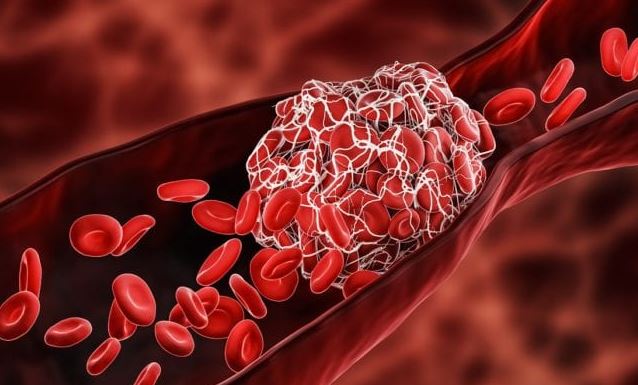Follow a balanced diet to improve your health and save money
06/28/2022 / By Zoey Sky

It can be hard to follow a balanced diet, especially if you’re on a tight budget. But according to experts, cooking nutritious meals at home is key to improving your overall well-being and saving on future healthcare costs.
Eating cheap junk food can harm your health
Studies have proven that eating junk food and processed food is bad for your waistline and your health. A poor diet can also affect your finances negatively.
While it may seem like you’re saving money by purchasing cheaper, low-quality foods, the end result is the opposite because you’ll eventually be paying more for medical expenses. A diet consisting of unhealthy foods increases your risk of health problems like cancer, diabetes, heart disease and stroke.
Dr. Thomas Gaziano, associate professor of Harvard Medical School and cardiologist at Brigham and Women’s Hospital in Boston, warned that if you don’t follow a balanced diet, “there are immediate health consequences.”
If you have more health problems, you will “have more doctor visits and copays, and insurance rates will go up,” added Gaziano.
Fortunately, at least 40 to 45 percent of heart issues can be addressed with a balanced diet.
In the study, Gaziano and his team examined the effects of 10 dietary factors, including consumption of fruits and vegetables, nuts and seeds and processed meats. The results revealed that the annual cost of cardiometabolic diseases caused by poor diet is about $300 per person or a whopping $50 billion nationally.
A poor diet also accounted for 18 percent of all heart disease, stroke and Type 2 diabetes costs in America.

Making healthy eating accessible to the public
Experts have established several guidelines to help people improve their eating habits.
According to federal dietary guidelines, a healthy eating plan includes fruits, vegetables, whole grains and fat-free or low-fat dairy products. A balanced diet should also include lean proteins and foods low in saturated fats.
While buying cheap food to save money doesn’t sound like a good idea, for most people this is a way of life. After all, buying fresh fruits and vegetables, especially organic produce, can cost an average of $1.50 more per person each day.
Dr. Dariush Mozaffarian, dean of the Friedman School of Nutrition Science and Policy at Tufts University in Boston, explained that each dollar counts for families in “dire financial straits.”
While it looks like the math makes sense, Mozaffarian said you’re not actually saving money on groceries by buying cheaper fast food. In fact, it’s the opposite. It’s more expensive to buy the cheapest fast food than to cook.
However, not everyone has free time or energy to plan and cook a meal, especially if they’re preparing food for a large family. Mozaffarian advised that dollar for dollar, you can get healthier, cheaper food in a grocery store.
He added that more needs to be done to make healthy food affordable. But if you want to improve your health, it’s worth it to pay more for nutritious foods, especially when compared to the costs of chronic illness linked to an unhealthy diet.
Skip the soda and eat more fruits
According to a paper published in 2018, the cost of care for people with diabetes accounts for about one in four health care dollars spent in America. Care for a person with diabetes costs an average of $16,752 annually.
In a 2019 study, data revealed that if adults in the country followed a healthy diet, the cost savings could reach $88.2 billion. The savings would stem from reductions in cases of Alzheimer’s disease, cancer, heart disease and Type 2 diabetes.
It can be hard to make the shift to a healthier diet, but Gaziano advised that you can start by making small changes, such as limiting your consumption of added sugars and processed foods and opting for fruits and vegetables. (Related: Low intake of fresh fruits and vegetables linked to cardiovascular death: Following a balanced diet boosts heart health.)
If you’re busy with work, Mozaffarian suggests the “shop and assemble” approach. Stick to simple recipes like salads, and make one with nutritious ingredients like feta cheese, greens, tomatoes, walnuts and olive oil. A salad won’t take too much time, and it’s a healthy dinner for the whole family.
Tips for eating healthy on a budget
Try the tips below to save money on groceries while also following a healthy diet.
- Keep a grocery list. Going to the supermarket will cost you extra time and gas money, but if you have an updated list you can avoid having to go on a grocery run because you forgot the milk and eggs.
- Plan your menus around sales and discounts. In your free time, review different supermarket flyers or check for their specials online. Taking the time to check store sales will help you save money on expensive items like meats.
- Start a home garden. If you have space in your backyard, plant kitchen staples like carrots, lettuce, peppers and tomatoes. If space is an issue, grow herbs like basil, rosemary and thyme to give dishes an herby flavor boost.
- Cook more meals at home. When you cook at home, you can control all the ingredients that you use for each dish. This also helps you avoid the labor costs involved with restaurant meals.
- Buy raw, whole and in bulk. Raw and whole foods are not prepared or processed, which means they are usually cheaper compared to their precooked and ready-to-eat counterparts. Buying staples in bulk can also help you save more money on family favorites.
- Stock up whenever possible. Buy extra canned and frozen goods like fruits and veggies, when they’re on sale. Wrap meats in a freezer bag before freezing.
- Buy generic items. Store brands are usually similar or even better than the pricier name brand.
- Check unit prices or prices per serving. Search store shelves carefully since the least expensive items are usually placed on the top and bottom shelves.
- Cook with high-nutrition, low-cost foods. Instead of buying expensive meats, switch to beans, eggs, lentils, peanut butter, tofu and canned fish (like salmon or tuna). When shopping, look for good prices on grains like barley, brown rice and oats. Stock up on low-cost filling options like sweet and white potatoes. To save more money, choose frozen fruit and vegetables, which are just as nutritious, but much cheaper than some fresh counterparts.
Instead of trying to save money by buying cheap junk food, it’s better to plan meals and cook at home. Following a healthy diet is better for your overall well-being, and it can help you save more money on future health care costs.
Watch this video about plant-based diet and health.
This video is from the CAT channel on Brighteon.com.
More related stories:
Sources include:
Submit a correction >>
Tagged Under:
#nutrition, budget meal prep, food is medicine, food preparation, food science, fruits, grocery, healthy diet, healthy eating, home cooking, meal planning, natural health, natural medicine, organics, savings, veggie
This article may contain statements that reflect the opinion of the author




















